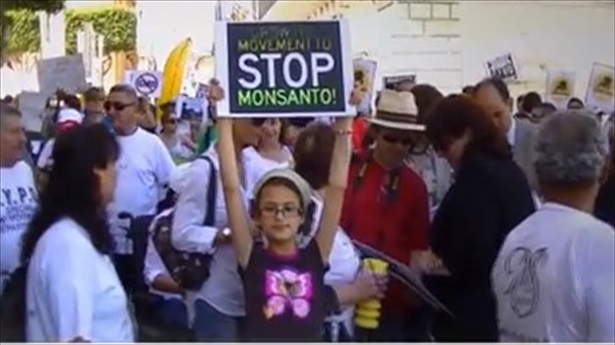Monsanto is best-known for its controversial use of genetically-modified organisms, and less well-known for being involved in the story of the defoliant Agent Orange (the company's long and involved story is well told in the book and film "The World According to Monsanto", by Marie-Monique Robin.) Its shadow also looms large over the current TPP talks: the USTR's Chief Agricultural Negotiator is Islam A. Siddiqui, a former lobbyist for Monsanto. But it would seem that the company is starting to explore new fields, so to speak; as Salon reports in a fascinating and important post, Monsanto is going digital:
Monsanto spent close to $1 billion to buy the Climate Corporation, a data analytics firm. Last year the chemical and seed company also bought Precision Planting, another high-tech firm, and also launched a venture capital arm geared to fund tech start-ups.Here's the key shift that is behind that move:
Many farmers have been collecting digitized yield data on their operations since the 1990s, when high-tech farm tools first emerged. But that information would sit on a tractor or monitor until the farmer manually transferred it to his computer, or handed a USB stick to an agronomist to analyze. Now, however, smart devices can wirelessly transfer data straight to a corporation's servers, sometimes without a farmer's knowledge.Data that in isolation is of limited use suddenly becomes highly valuable when aggregated. Here, for example, are some of the ways that companies like Monsanto might use their new stores of knowledge:
details on the economic worth of a farm operation could empower Monsanto or DuPont to calculate the exact value the farm derives from its products. Monsanto already varies its prices by region, so that Illinois farmers with a bumper crop might be charged more for seeds than Texas farmers facing a drought. Bigger heaps of data would enable these companies to price discriminate more finely, not just among different geographic regions but between neighbors.Another possibility is the following:
Real-time data is highly valuable to investors and financial traders, who bet billions of dollars in wheat, soybean and corn futures. In a market where the slightest informational edge makes the difference between huge profits and even bigger losses, corporations that gather big data will have a ready customer base if they choose to sell their knowledge. Or they could just use it to speculate themselves.Finally, there's this:
Another issue is how the value of this information will be determined, and the profits divided. The prescription services Monsanto and DuPont are offering will draw on the vast amounts of data they amass from thousands of individual farms. Farmers consider much of this information -- such as on soil fertility and crop yields -- confidential, and most view details about particular farming techniques as akin to personal "trade secrets." Even if the corporations agree not to disclose farm-specific information, some farmers worry that the information may end up being used against them in ways that dull their particular competitive edge.The parallels with Facebook, Google and other online services that make money from collecting and analysing personal data, are clear. By pooling huge quantities of previously secret data, companies gain a privileged position with unique insights into what farmers are doing. As well as enabling them to track exactly what the latter are up to on a 24-by-7, field-by-field basis, it also allows these aggregators of agricultural data to see the bigger picture in terms of the relationships between different farms. In other words, the race seems to be on to become the NSA of agriculture, with Monsanto already emerging as the likely winner.
Follow me @glynmoody on Twitter or identi.ca, and +glynmoody on Google+




Reader Comments
to our Newsletter